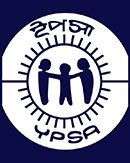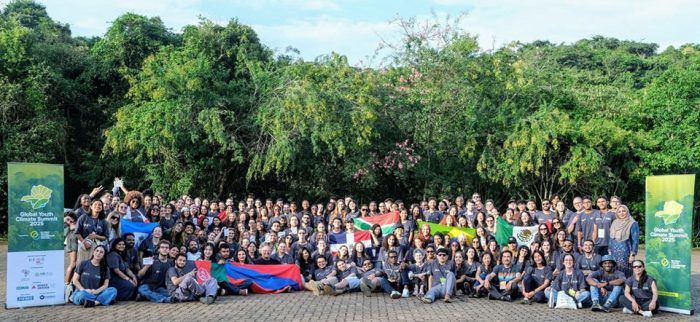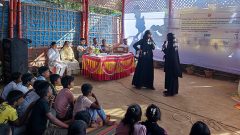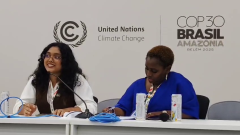BELO HORIZONTE, BRAZIL – The Global Youth Climate Summit 2025, which convened 200 in-person delegates from 39 countries and another 300 youth participants virtually, concluded today at the Federal University of Minas Gerais (UFMG) in Belo Horizonte. Inaugurated by Sandra Regina Goulart Almeida, President of UFMG, and Professor Mateus Simões de Almeida, Vice Governor of the State of Minas Gerais, the four-day summit was organized by the Global Youth Leadership Center, an international nonprofit.
The event served as a crucial platform for educating youth on climate science, building global leadership capacity, fostering international networks, and creating a strategic dialogue for youth from climate-vulnerable regions to shape the global climate agenda ahead of COP30 in Brazil.
Afra Nawar, youth coordinator at Young Power on Social Action (YPSA), delivered a compelling opening speech as a youth leader from Bangladesh. She powerfully highlighted how climate-vulnerable countries like Bangladesh, despite contributing minimally to global emissions, suffer the most severe consequences of climate change, calling for urgent and equitable global action.
The summit featured over 50 speakers across plenaries, panels, workshops, and masterclasses focused on climate science, biodiversity restoration, and leadership development. Key expert perspectives came from Peter Fiekowsky, former NASA scientist, and Dr. Geraldo Fernandes, Coordinator of the Knowledge Center for Biodiversity at UFMG, engaging diverse sectors including academia, business, and nonprofit organizations.
Powerful youth voices were at the center of the summit, with inspiring speeches from Indigenous and frontline community representatives. Notably, two key speakers from Para state, which will host COP30 later this year: Rayane Xipaya, Indigenous Youth Climate Activist, spoke about forest protection and Indigenous rights, while Waleska Queiroz addressed climate injustice, emphasizing that “youth must be leaders of today, not tomorrow.”
The summit included six virtual panels covering critical topics: Youth in Loss and Damage Advocacy, Water Security, Biodiversity and Nature-based Solutions, Youth in Locally Led Adaptation, AI and the Future of Energy, and the Role of Philanthropy in Climate Action. Each panel featured experts and youth advocates from around the world, fostering knowledge exchange and diverse perspectives.
Delegates participated in a field visit to Inhotim, an open-air natural museum and botanical garden in Belo Horizonte, where they connected with nature and biodiversity while exploring sustainable practices.
A highlight of the summit was the co-creation of the Belo Horizonte Youth Climate Declaration, a global call to action developed by youth for youth. Rooted in themes of Education, Biodiversity, and a Just Transition, the declaration addresses five key areas: Climate Finance and Accountability, Youth Leadership & Participation, Climate Justice & Equity, Traditional Knowledge & Nature-Based Solutions, and Sustainable Cities & Just Transition.
The declaration states: “We, the youth gathered in Belo Horizonte, 200 in person and 300 virtually, from 39 countries, reaffirm our commitment to a future led by education, biodiversity, and justice.” It demands greater youth involvement in climate policy, recognition of traditional knowledge, equitable climate finance, and inclusive approaches to solutions.
At the closing ceremony, Ejaj Ahmad, CEO and Founder of GYLC, challenged youth delegates to carry forward their commitments: “As you return to your communities, say what you mean and honor your word. This integrity in leadership is what will ultimately change the world.” Maria Osmarina Marina da Silva Vaz de Lima, Minister of the Environment and Climate Change in Brazil, expressed being deeply inspired by the youth participants, reflecting on her own activist past. The Minister commended the Global Youth Leadership Center for organizing the summit ahead of COP30 and pledged to incorporate the Belo Horizonte Youth Climate Declaration into the COP30 agenda.
The summit also celebrated ten outstanding young leaders named as 2025 Youth Climate Champions, each receiving USD 1,000 for community climate action projects. The champions represent countries including Malaysia, Philippines, Bolivia, Mexico, Brazil, Tunisia, Colombia, Morocco, South Africa, Indonesia, Ghana, India, Peru, and Ethiopia.
PRESS RELEASE: UFMG Press Office Center for Communication (CEDECOM), UFMG




